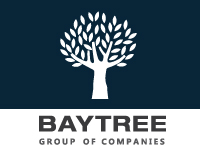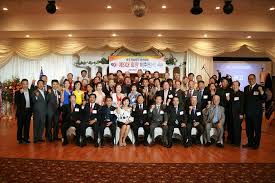CA
ON
홍이표치과
전화: 647-985-0456
9625 Yonge St #4, Richmond Hill, ON Toronto, ON
1.jfif)
준비된 바이어 그룹 , BAYTREE 이너써클
전화: 416-226-5999
7030 Woodbine Ave. Suite 103 Toronto, ON

캐나다 공인 컨설턴트 - 한인크레딧 컨설팅
전화: 416-897-8438
1 High Meadow Place, Unit 2 North York, ON

1004열쇠
전화: 416-895-1004
4 Blakeley Rd. Toronto, ON

놀부 - 한식/일식/중식
전화: 416-221-4700
3 Elmhurst Ave, North York, ON

럭키 여행사
전화: 416-938-8323
4699 keele st.suite 218 toronto Ontario M3J 2N8 toronto, ON

골프 싱글로 가는길
전화: 647-291-2020
115 York Blvd Richmond Hill Toronto, ON

토론토 기쁨이 충만한 교회
전화: 416-663-9191
1100 Petrolia Rd Toronto, ON

대형스크린,LED싸인 & 간판 - 대신전광판
전화: 416-909-7070
4065 Chesswood Drive Toronto, ON

싸인건설
전화: 416-909-7070
4065 Chesswood Dr. North York, ON
0.jfif)
토론토 민박 전문집
전화: 416-802-5560
Steeles & Bathurst ( Yonge) Toronto, ON

호남향우회 (토론토)
전화: 647-981-0404
7 Bishop Ave. #2411 Toronto, ON

It would be a place where all the visitors including me share the life stories and experiences through their activities,especially on life as a immigrant.
Why don't you visit my personal blog:
www.lifemeansgo.blogspot.com
Many thanks.
블로그 ( 오늘 방문자 수: 21 전체: 267,584 )
Check-in 본인자신이 하게된다.(공항수속)
lakepurity
2007-12-27
Airlines want to help you help yourself – by having you check your own bags
BRENT JANG
From Thursday's Globe and Mail
December 27, 2007 at 12:05 AM EST
Air Canada persuaded you to check yourself in and print your own boarding pass. Now the country's largest airline wants you to take care of your own bags.
Consumers will save time by “self-tagging” luggage after using electronic check-in kiosks at airports, says Air Canada chief executive Montie Brewer.
He envisages travellers embracing the concept, similar to the way bank customers gravitated to automated banking machines in the mid-1980s to avoid lineups at bank wickets.
The same kiosks that spit out boarding passes have been reprogrammed to also print baggage tags as part of a trial project in Toronto, Montreal and Vancouver.
By the end of 2008, pending approval from Transport Canada and various airport authorities, Air Canada's self-tagging option is scheduled to be unveiled in Ottawa, Calgary, Edmonton, Winnipeg and Halifax.
Smaller airports will be targeted starting in 2009, although some of those operations will have to install new kiosks first.
“It's still in the test phase, but the whole objective is to have choice for the consumer,” Mr. Brewer said.
Speaking from Toronto's Pearson International Airport, where he demonstrated the self-tag feature, the Air Canada chief executive added: “We know from talking to our customers what things that they would see value in.”
Passengers arriving at an airport would go to a kiosk and enter their booking reference number. After printing out boarding passes, consumers can press the screen to print tags and attach them to luggage handles. Once that's done, they walk over to the drop-off area and place their bags on the conveyor belt.
Every bag is X-rayed, and if anything suspicious is seen during the screening, the bag's contents will be examined by airport security staff, Mr. Brewer said.
Calgary-based WestJet Airlines Ltd. plans to start rolling out its self-tagged baggage program in mid-2008, placing Canada's two largest carriers among the most aggressive in the world to shift the check-in process to airport kiosks.
“It will become the trend internationally,” said Rick Erickson, a Calgary-based aviation consultant who heads RP Erickson & Associates.
Airlines face high fuel bills and fierce fare competition domestically and internationally, so it makes sense to stay competitive by expanding the use of kiosks to reduce labour costs, Mr. Erickson said.
Wherever possible, Air Canada and WestJet plan to redeploy airport check-in staff, retraining them for “higher-value” functions, such as helping disabled travellers and generally being available to answer questions about the kiosks and other travel issues.
WestJet CEO Sean Durfy said kiosks will be a welcome sight for business travellers in a hurry, but customer service agents won't be disappearing. “You're not going to have a situation where nobody is there to help you,” Mr. Durfy said.
Harry Gow, co-founder of consumer advocacy group Transport 2000, isn't a fan of the proliferation of airport kiosks, predicting that there will be resistance from some passengers upset about yet another example of machines taking over from customer-service staff.
“I'm getting tired of this expectation that consumers do more in return for less,” Mr. Gow said, noting that Montreal-based Air Canada cancelled free hot meals on North American long-haul flights in 2005. “You start to feel that you're at the company's service rather than having service provided to you. Travellers will turn into self-tagging robots. It's brutal.”
But other industry observers say the airline industry is smart to ride the technology wave, borrowing a page from retailers such as grocers and hardware outlets, which are increasingly giving consumers the option of using self-serve checkout counters.
In speeding up the check-in process, Air Canada and WestJet are hoping to improve “turnaround” times for their aircraft. Better on-time performance not only bolsters the mood of travellers, it's also good for the bottom line, because planes that depart and arrive as scheduled eliminate the need to pay overtime to employees.
As well, on-time performance ensures that planes are generating revenue and not stuck on the ground, eating up valuable time and resources, industry observers say.
The shift to self-tagged luggage underscores the aviation sector's efforts to emphasize kiosks as a do-it-yourself travel option. Not only do airlines increasingly want consumers to print boarding passes and baggage tags, they're also working on software to enable users to conduct other business, such as rebook flights and pay for discounted in-flight food in advance.
Air Canada is often cited as one of the industry's leading innovators, said Mr. Brewer, pointing to the airline's 2004 introduction of Web check-in from home computers and the launch earlier this year for boarding pass barcodes e-mailed to mobile devices such as BlackBerrys.
Air Canada, which emerged from bankruptcy protection in 2004, sought and obtained productivity improvements from unionized employees during the restructuring process. With new contract talks slated for 2009, Mr. Brewer said he's aware that management must tread carefully to foster better labour relations.
“We want to improve the quality of life for employees and I believe there are ways to do that and still meet our financial objectives. But we have to work collaboratively to get there, and that's going to be the challenge,” Mr. Brewer said. “There will be some friction and that's natural. If everybody wants to destroy the airline, they can. The hope is that we'll have an airline that no one wants to destroy.”
Maintaining a financially healthy carrier is in the best interests of management and union leaders, bringing greater job security, he said.
ACE Aviation Holdings Inc., which owns 75 per cent of Air Canada, is slated to unwind as a holding company by mid-2008. While ACE chairman and CEO Robert Milton plans to go into aviation consulting when ACE disappears, Mr. Brewer said he is committed to guiding Air Canada for the foreseeable future.